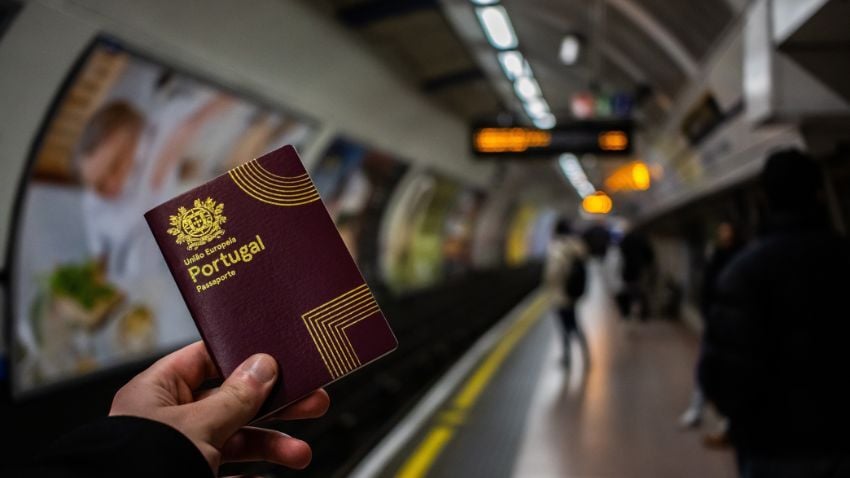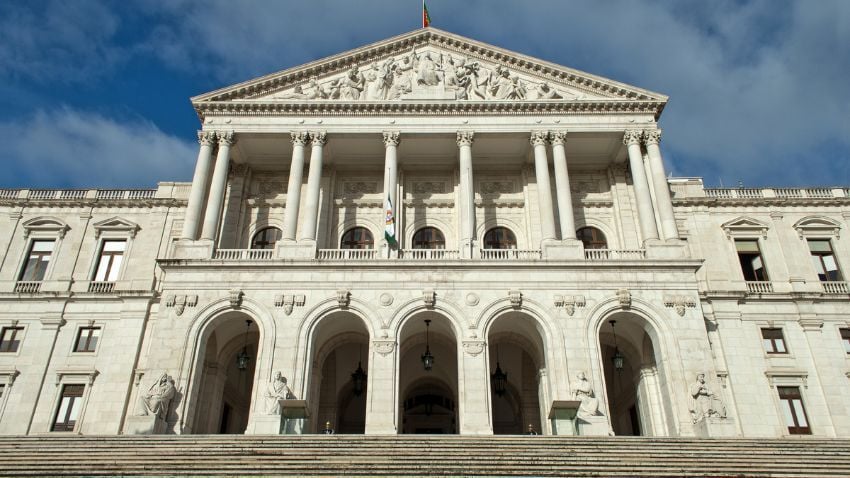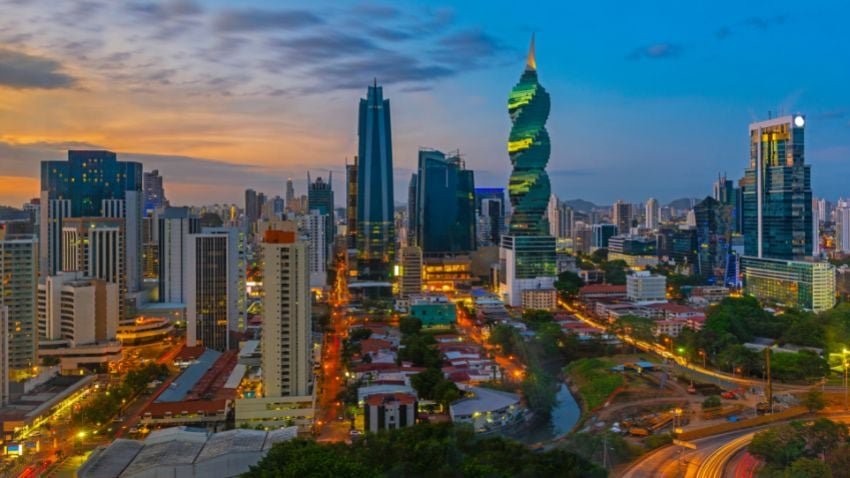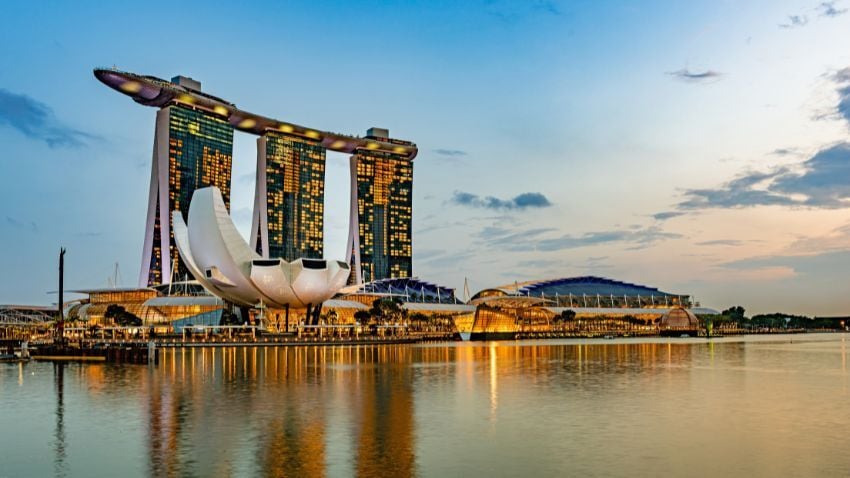How Safe Is Japan?
The word "Japan" brings to mind many things: high-tech, sushi, anime, samurai, and cherry blossoms. It is one of the most intriguing countries in...

6 min read
Over the years, countless people have asked me why I never recommend Portugal for their Plan-B, why I keep talking people out of even considering the Golden Visa, and why I do not have any investments or ties there. The answer is simple: I saw this coming years ago. Portugal’s government has a habit of making promises it cannot keep and then changing the rules when it suits them. Every time someone told me that everything would be fine and that the process was guaranteed, I warned them that this day would come.
When the Golden Visa was first introduced in 2012, it seemed like a dream program. You could invest in real estate, spend very little time in the country, and apply for citizenship after five years. But over time, the government started adding layers of restriction. In 2021 and 2022, they blocked real estate investments in Lisbon, Porto, and much of the Algarve. By 2023, they eliminated the real estate option altogether. Now they are proposing to double the residency requirement from five years to ten and add new cultural and financial tests. It is a classic case of a government moving the goalposts and pretending it is reform.
While Portugal and much of Europe are closing off opportunities through endless regulation and broken promises, Latin America is heading in the opposite direction. Countries such as Paraguay and Panama are opening their doors to expats, investors, and families who want freedom, stability, and growth. The truth is that Europe is no longer the safe bet it once was. In this article, I will go through the proposed amendments to Portugal’s Citizenship Law and explain how these changes will affect expats and investors who once saw the country as a key part of their Plan-B.
The Portuguese Parliament has approved amendments to their Citizenship Law that introduce tougher requirements for naturalization. Although it has not yet been promulgated, the proposed changes point to a significant shift away from Portugal’s traditionally accessible path to citizenship. Below is a summary of the proposed changes:
Longer Residency Requirement: Under current law, applicants can apply for citizenship after five years of legal residence. However, the new law extends this period to seven years for Portuguese-speaking or EU member state nationals. For all other nationals, the waiting period will now be ten years. This will likely double the wait time for many existing Golden Visa holders.
Expanded Cultural and Civic Knowledge Tests: Previously, applicants were only required to speak basic Portuguese. The new law requires applicants to demonstrate knowledge of the Portuguese language, culture, history, and national symbols through an exam or official certificate. Instead of a simple language test, there will now be a comprehensive integration requirement.
New Requirements on Democratic Values and Political Knowledge: The new law adds two previously non-existent obligations:
Applicants must demonstrate an understanding of the fundamental rights and duties associated with Portuguese nationality and the state's political organization.
They must formally declare adherence to the principles of democracy and the rule of law.
Stricter Criminal Record Provisions: Under current law, applicants can be disqualified if they have been sentenced to three or more years in prison. The new law reduces the sentence to two years and broadens the range of crimes that can prevent naturalization.
National Security and International Sanctions: The clause concerning national security risks remains unchanged—applicants involved in terrorism, violent crime, or organized crime remain ineligible. However, a new condition has been added: candidates must not be subject to restrictive measures (like sanctions) imposed by the United Nations or the European Union.
Proof of Financial Self-Sufficiency: Applicants are now required to prove they have the financial means to support themselves. This provision, absent from previous versions, could be particularly problematic for retirees or those with irregular incomes.

The Portuguese Parliament has approved amendments to their Citizenship Law that introduce tougher requirements for naturalization
After months of delay, the Portuguese Parliament has approved the new law. However, the legal process is not yet complete. The President has 20 days to sign the law, veto it, or refer it to the Constitutional Court. If the amendment is referred to the Constitutional Court, the Court must rule within 25 days.
One of the most unacceptable aspects of the amendments is that the grandfathering provision will not apply to those already in the residency process. Under the new regulation, the citizenship countdown would begin only from the date the residence card is issued, not from when the Golden Visa application was submitted. Because residence cards are typically issued many months—and sometimes more than a year—after the initial application, due to Portugal’s lengthy approval and biometric scheduling process. So, many applicants could lose all the time they’ve already spent waiting and have to restart their eligibility period for citizenship from the beginning.
Importantly, the reform was not designed to target investors but rather to tighten controls on other types of migration. Golden Visa holders can still apply for Permanent Residency (PR) after five years of residence and physical presence for at least seven days per year. However, once they transition to Permanent Residency (PR), a separate legal status, they may not be required to fulfil any further annual stay minimums in Portugal under the PR regime. This distinction means that if the new citizenship law takes effect, many investors may regard PR status as a key backup option, offering long-term residency rights without the tougher path to citizenship.
When Portugal launched its Golden Visa program in 2012, it was among the most welcoming residency-by-investment opportunities in Europe. The rules were simple: a minimum €500,000 (around $581,655 USD) real estate purchase (among other options) could grant a renewable residence permit with minimal stay requirements. After five years, investors could apply for citizenship without relocating permanently.
However, the government began tightening the requirements because property prices rose rapidly.
2021–2022: Real estate investments were restricted to inland areas, excluding Lisbon, Porto, and much of the Algarve.
2023: Because of EU pressure and rising real estate prices, the residential investment route was effectively phased out. Applications were limited to specific investments, cultural donations, or financing for job creation projects.
2024–2025: The latest Citizenship Law reform further complicates the naturalization path—stretching residence requirements, adding civic exams, and removing the legal predictability that once made Portugal stand out.
In just over a decade, Portugal’s Golden Visa journey has gone from being one of Europe’s easiest Plan-B residencies to one of its most bureaucratic.
Across Europe, expats' property acquisition paths to residency or citizenship are being restricted, waiting periods are being extended, and compliance requirements are being expanded. Europe is far removed from the era of opportunity-driven "golden visas." Now, under the guise of integration, doors are being slammed shut on foreigners. In this new political environment, stability and legal clarity will matter more than ever when choosing a second residency or citizenship option.

Panama offers one of the best residency-by-investment programs in Latin America and is currently undergoing upgrades
As Europe moves toward tighter residency rules, longer timelines, and higher bureaucratic barriers, Latin America is quietly becoming the world’s most attractive region for expats seeking freedom and opportunity.
Straightforward residency paths in Latin America, with clear requirements and shorter waiting periods, are a significant advantage that no other region can match. For example, permanent residency can be obtained in Paraguay within months with no investment requirement. Panama and Costa Rica also have stable, low-bureaucracy routes to citizenship for long-term residents that allow naturalization after 5 years of residence, without the endless paperwork or political unpredictability now seen in Europe.
Unlike Europe's high-tax environment, many Latin American countries—thanks to their territorial tax systems—do not tax foreign income earned abroad. This minimizes the tax burden of investors, retirees, and remote workers, enabling them to legally maintain global income streams. Panama and Paraguay are prime examples of countries with investor-friendly tax policies and legal clarity.
From healthcare to housing, daily life in Latin America often costs a fraction of what it does in Europe or North America. Private healthcare is modern, affordable, and increasingly international. Real estate remains undervalued compared to similar markets in Southern Europe—especially beachfront or countryside properties. Combined with year-round sunshine and warm cultures, the region offers both comfort and value.
Latin America is still in its growth phase. Economic reforms, foreign investment incentives, and expanding infrastructure make it a region where entrepreneurs and investors can grow alongside the market itself. There is also far less political pressure to conform to “one-size-fits-all” residency models. Governments welcome capital and talent rather than restricting them.

Portugal is a beautiful country, with excellent cuisine, and definitely worth visiting, but when it comes to moving there and making it your Plan-B, it's not a good choice
I have been telling people for years not to put Portugal on their Plan-B list, and once again, I have been proven right. The government’s plan to double the residency requirement for citizenship and add even more restrictions only confirms what I have said all along. Portugal has taken away everything that once made it appealing, from the Golden Visa to the non-habitual tax regime, and has made it clear that foreigners are no longer welcome.
Europe as a whole is following the same pattern, replacing opportunity with regulation and freedom with endless bureaucracy. What was once a clear and promising path to EU residency and citizenship has turned into confusion, waiting, and disappointment. If you are still counting on Europe for your Plan-B, it is time to start thinking differently.
While Europe is closing its doors, Latin America is opening them wide. Across the region, countries are inviting expats, entrepreneurs, and families who value stability, growth, and freedom. The real opportunities today are in Latin America, where optimism and progress still meet. Download our free special report on Plan-B Residencies & Instant Citizenships to explore where your next opportunity truly lies.
If you want the best intel from the expat world, including profitable offshore opportunities, little-known tax-saving strategies, and hard-won insights on immigration, passports, and Plan-B residencies, all delivered to your inbox every single week, then join our daily correspondence, EMS Pulse®. Currently enjoyed by over 84,000 expats and expat-hopefuls worldwide. Fill in the form below to join our newsletter free:

Written by Mikkel Thorup
Mikkel Thorup is the world’s most sought-after expat consultant. He focuses on helping high-net-worth private clients to legally mitigate tax liabilities, obtain a second residency and citizenship, and assemble a portfolio of foreign investments including international real estate, timber plantations, agricultural land and other hard-money tangible assets. Mikkel is the Founder and CEO at Expat Money®, a private consulting firm started in 2017. He hosts the popular weekly podcast, the Expat Money Show, and wrote the definitive #1-Best Selling book Expat Secrets - How To Pay Zero Taxes, Live Overseas And Make Giant Piles Of Money, and his second book: Expats Guide On Moving To Mexico.

The word "Japan" brings to mind many things: high-tech, sushi, anime, samurai, and cherry blossoms. It is one of the most intriguing countries in...

Singapore is often described as a city that works, and it totally deserves its reputation. This small island nation in Southeast Asia has built one...

Panama’s geographic size is modest, but its global relevance is not. The country connects two oceans and two continents, operates on a dollarized...